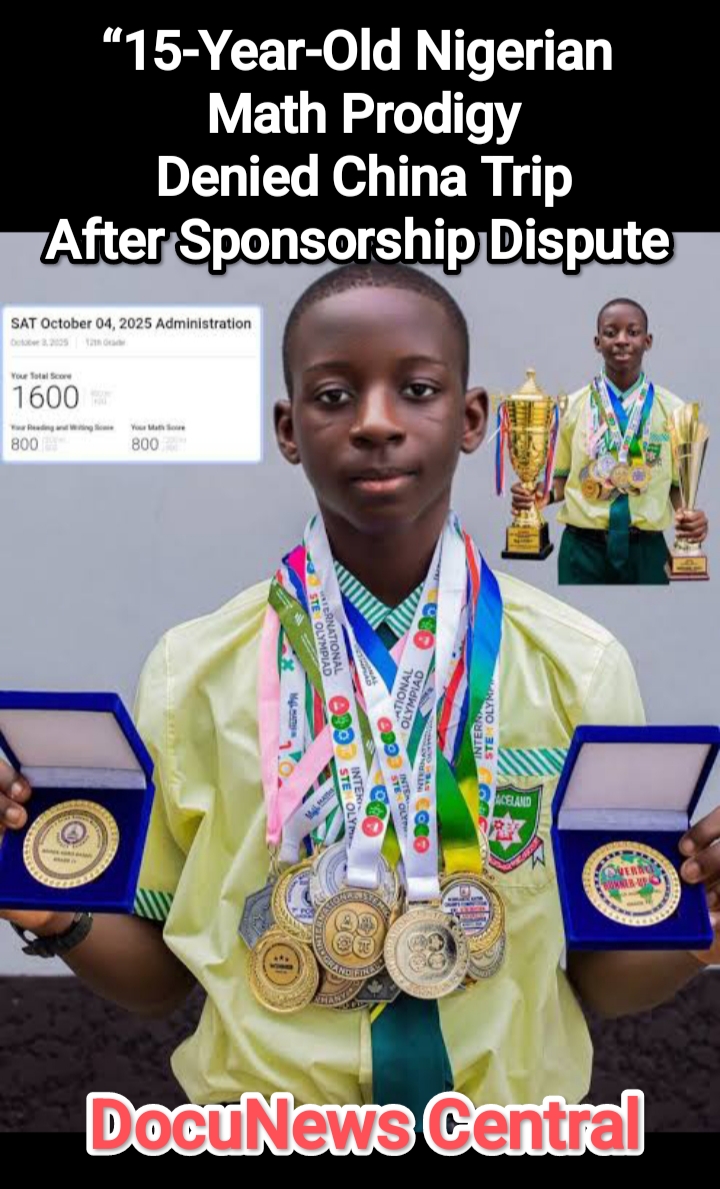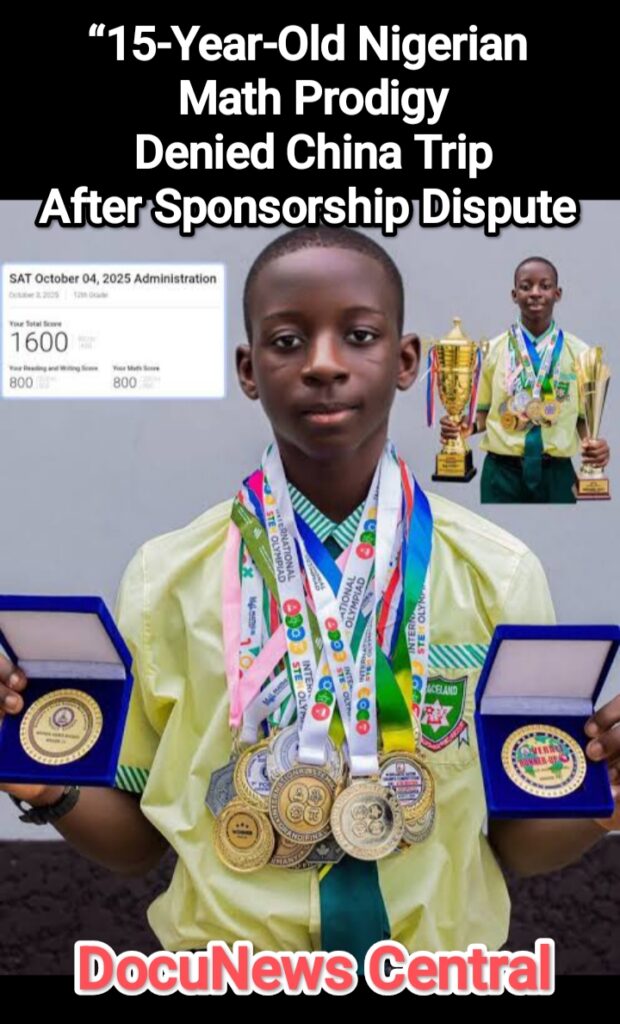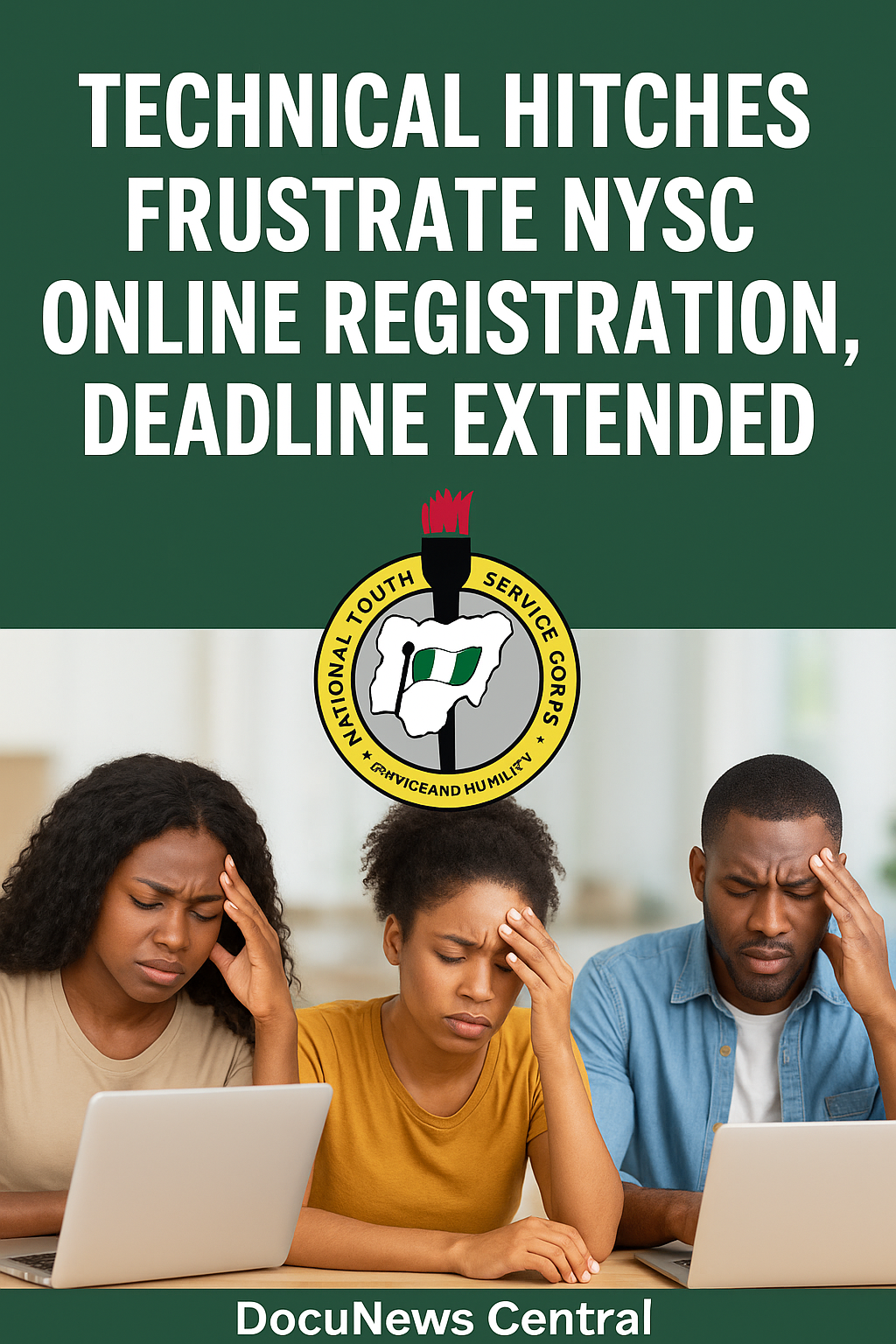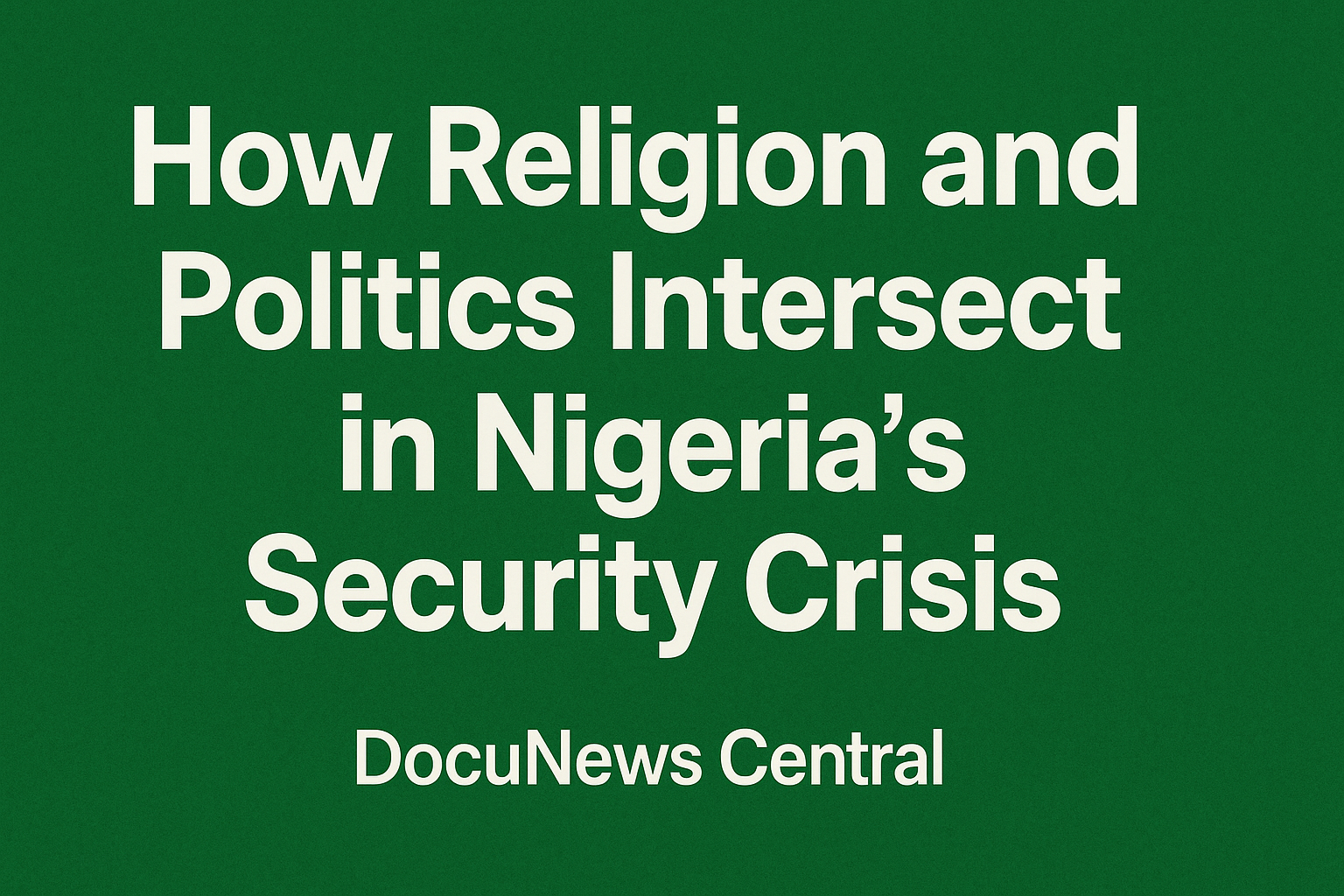

In Nigeria today, the story of a gifted young student has stirred up serious conversations around talent, funding, and government accountability. According to multiple reports, a fifteen-year-old mathematics prodigy, Agbo Adoga, reportedly qualified to represent Nigeria at an international mathematics competition in China but was unable to travel due to a sponsorship dispute with the Federal Ministry of Education (FME). Both sides have presented conflicting accounts. In this blog by DocuNews Central (copyright reserved), we explore what happened, who’s involved, and the lessons for Nigeria’s future scholars.
Who Is the Student at the Centre of the Controversy?
According to Sahara Reporters, Agbo Adoga is a 15-year-old student at Graceland International School in Port Harcourt, Rivers State. He reportedly achieved extraordinary results, including a perfect 1600 score on the SAT and a “world first” in the “Maths Best of the Best” round of the 5th International STEM Olympiad. His coach, Alex Onyia of Educare, announced that Adoga had also set his sights on attending the Massachusetts Institute of Technology (MIT) in the United States.
The story quickly gained traction online, positioning Adoga as one of Nigeria’s most promising young mathematicians.
What Exactly Happened?
The timeline, based on multiple sources, is as follows:
- On October 18 2025, Alex Onyia posted on X (formerly Twitter) that Adoga had scored a perfect SAT and qualified to represent Nigeria in the International Mathematics Olympiad in China.
- He later alleged that the Ministry of Education said there was no money available to sponsor participants.
- On October 19 2025, the Federal Ministry of Education released a statement denying any record or correspondence related to the sponsorship request.
This created two conflicting narratives — one claiming a lack of support, and another asserting no request was received. The truth, as of now, remains uncertain.
Why Is This Incident Important?
This controversy highlights issues of national concern. It’s about more than one student; it’s about how Nigeria treats its brightest minds. Below are key insights.
1. Talent Recognition vs. Funding Reality
The case exposes how funding gaps and slow bureaucracy can overshadow genuine talent. If verified, Adoga’s achievements show enormous potential — but talent without institutional support often fades.
2. Credibility of Claims and Qualification
There is confusion about whether the competition was the official International Mathematical Olympiad (IMO) or another event under a different STEM banner. This lack of clarity raises questions about communication and the credibility of qualification claims.
3. Institutional Accountability
The FME’s denial suggests either administrative oversight or miscommunication. The ministry’s stance indicates that no official request reached its office. If that’s true, what went wrong between the school, the coach, and the authorities?
4. National Image and Global Competition
Every country benefits when its young minds excel internationally. Losing a chance to participate not only affects one student but also weakens Nigeria’s visibility in global education circles.
What Do the Key Parties Say?
Coach and School’s Version
According to Gistreel, Alex Onyia confirmed that Adoga qualified for the competition. He also alleged that the ministry said there was “no money to sponsor anybody.” The coach claimed that although the parents were willing to fund the trip, private funding was reportedly not allowed because it involved national representation.
Government’s Response
Meanwhile, the Ministry of Education released a statement asserting that it had “no record or correspondence” of any sponsorship request. The ministry urged the public to ignore unverified online reports and rely only on its official communication channels.
Unanswered Questions
Despite public attention, many questions remain unresolved:
- Was Adoga officially certified as qualified by the competition’s organisers?
- Did the formal sponsorship request ever reach the Ministry of Education?
- Is the perfect SAT score independently confirmed?
- Was private funding truly prohibited by the competition rules?
Because key details are still unclear, independent verification is essential before drawing final conclusions.
Broader Context: Nigeria’s STEM Landscape
Nigeria has produced brilliant students who excel globally, but the system often struggles to nurture them. Many competitions — such as Cowbellpedia — celebrate math excellence locally, yet gaps persist in international preparation, funding, and mentorship.
For instance, talented students frequently face delayed communication, unclear sponsorship procedures, or inadequate travel support. The result is that only a few make it to the global stage, while others fall behind despite equal or greater potential.
Implications for Future Talent
The impact of this story goes far beyond one young genius. It sends a powerful message — both positive and negative.
1. Encouragement or Discouragement?
On the one hand, Adoga’s story can inspire students to pursue excellence despite obstacles. On the other hand, if they perceive that talent doesn’t guarantee opportunity, many might lose motivation.
2. National Reputation
Nigeria’s ability to support exceptional students shapes how the world views its education system. Missing a major global event could damage credibility among international academic networks.
3. Missed Opportunities
Exposure to international competitions builds confidence, encourages collaboration, and attracts scholarships. Every lost opportunity means lost visibility and fewer chances to strengthen Nigeria’s academic footprint.
4. Urgent Need for Transparent Systems
There must be clear, published procedures for student sponsorships. Schools, parents, and government bodies should know what steps to follow, who approves requests, and what timelines apply. Transparency ensures accountability and fairness.
How Nigeria Can Fix the Gap
1. Create Clear Sponsorship Guidelines
The Ministry of Education should release updated policies outlining how to request and approve sponsorships for international competitions. It should include deadlines, documentation standards, and contact points.
2. Foster Early Identification
Schools should partner with local STEM foundations to spot gifted students early. Once identified, they can be trained and registered for global contests without bureaucratic delays.
3. Encourage Private-Public Partnerships
Private companies, NGOs, and philanthropists can support travel, logistics, and training. The government can still retain oversight while allowing private sponsors to contribute transparently.
4. Promote Transparency and Communication
Better communication between schools and ministries will help prevent mix-ups. If a ministry declines sponsorship, it should state clear reasons so that private sponsors can step in when appropriate.
5. Celebrate Success Stories
Every student who represents Nigeria internationally should be publicly recognised. Highlighting success motivates others and proves that talent can thrive in the country.
Final Thoughts
The case of Agbo Adoga — assuming the reported facts are accurate — illustrates both Nigeria’s potential and its systemic hurdles. It’s a bittersweet tale: extraordinary brilliance overshadowed by bureaucratic confusion. When a 15-year-old loses a chance to compete internationally because of unclear sponsorship rules, it reflects a larger problem.
To nurture national excellence, Nigeria must do more than praise its brightest minds. It must build systems that protect their chances, empower their dreams, and sustain their achievements. As Sahara Reporters and other outlets have reported, the disagreement between the Ministry and the student’s camp highlights a vital lesson — young talent needs structure, not sympathy.
At DocuNews Central, we call for clarity, compassion, and concrete action. Let this story become a wake-up call for all stakeholders to rethink how Nigeria supports the minds shaping its future.
Copyright reserved, DocuNews Central.








